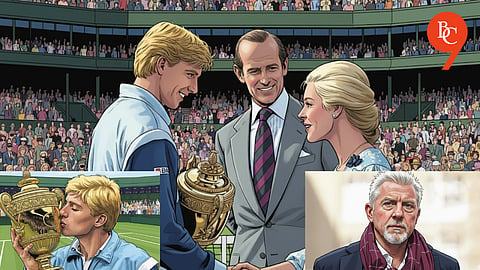

Boris Becker, the youngest men's singles champion in Wimbledon history, has expressed regret over his breakthrough in 1985, stating that he struggled to cope with the immense pressure and expectations that followed his instant fame. Becker, who was just 17 years, seven months, and 15 days old when he defeated Kevin Curren in the final, claims the victory fundamentally changed the trajectory of his life.
Going on to win five more Grand Slam titles, including two more at Wimbledon in 1986 and 1989, the early success created an impossible standard for his future endeavors. "When you start a second career, everything is measured by the success of winning Wimbledon at 17," the 57-year-old told BBC Sport. He added, "I'm happy to have won three, but maybe 17 was too young. I was still a child."
Becker's successful career was often overshadowed by a turbulent private life and financial woes. He struggled to mature under the constant global spotlight, noting that whatever he did, "it becomes a world sensation." He reflected on the issues that led to his downfall, including his 2022 prison sentence in England for concealing assets to avoid paying debts.
Serving eight months of a two-and-a-half-year sentence, Becker acknowledged that comfort and a lack of restraint were recipes for disaster. "I was too comfortable. I had too much money. Nobody told me ‘no’. Everything was possible. In hindsight, that’s the recipe for disaster," he admitted. He emphasized the importance of accountability, stating, "You cannot change the past. You can only change the future because you live in today.”
Despite his personal struggles, Becker maintained a visible presence in tennis after retiring in 1999, notably having a successful three-year spell as Novak Djokovic’s coach. Although deported from the United Kingdom following his release from prison, Becker's comments offer a poignant perspective on what lies behind the limelight.
